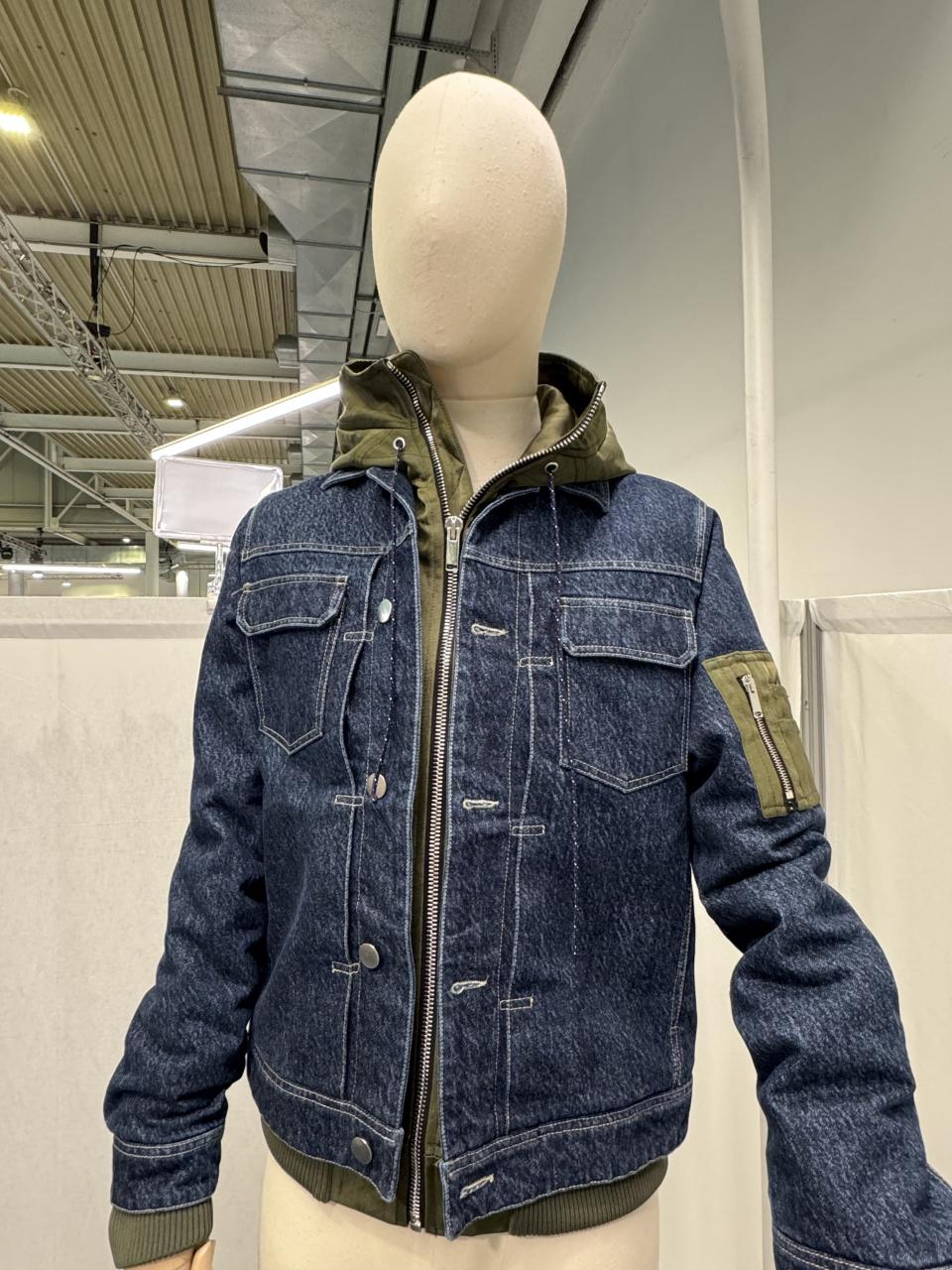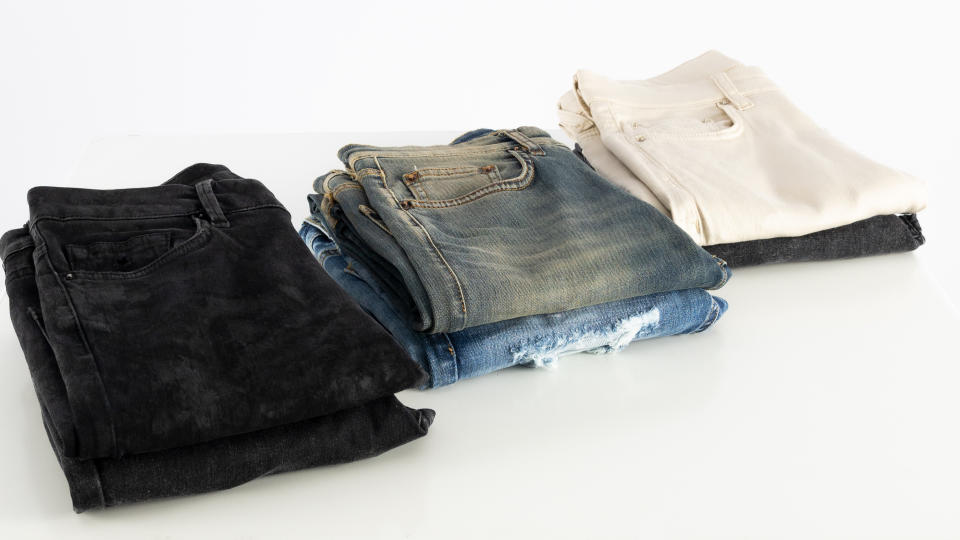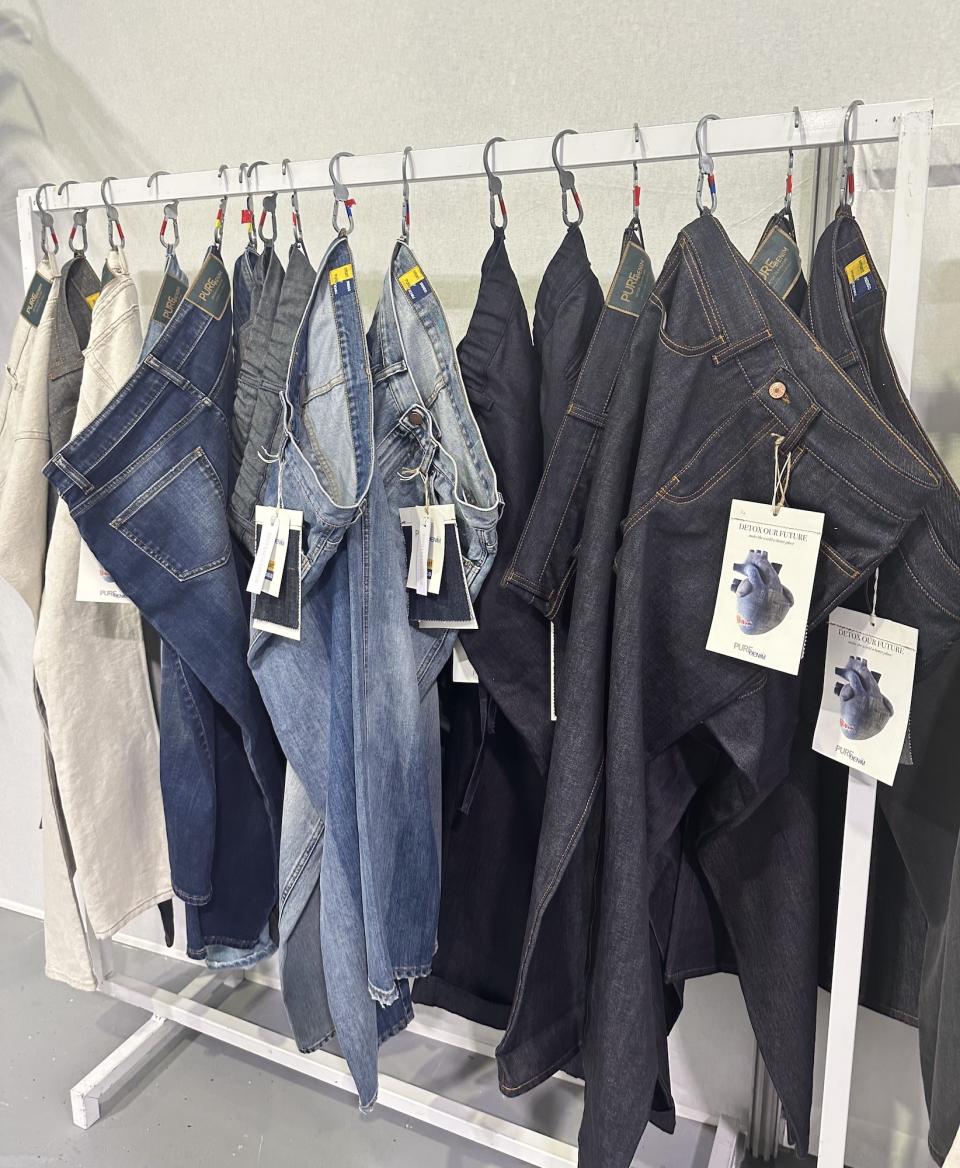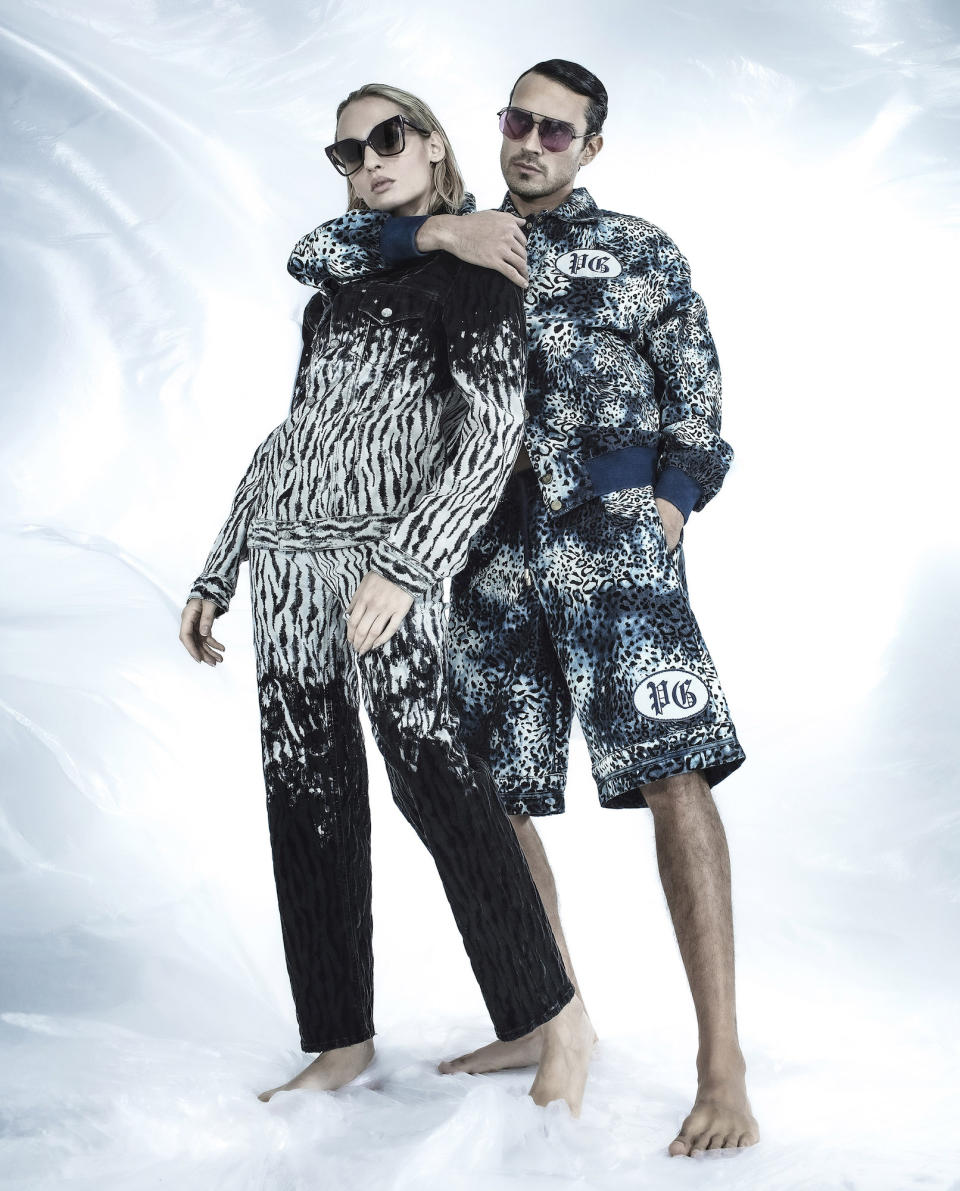Denim PV: Exhibitors Feel Fashion Slowdown Pinch but Keep Upping Sustainability Cred

Harder times usually call for more conservative fashion, but despite a sharp downturn in volumes and sales this year, denim mills and manufacturers didn’t skimp on innovation.
Industry players gathering at the two-day Denim Première Vision trade show were cautious about the sector’s outlook forecasting not-so-rosy prospects for 2024.
More from Sourcing Journal
Denim is said to be a business bellwether of the fashion industry at large, and its slowdown falls in line with luxury spending cooling and fashion’s reduced growth rate at a time of economic volatility, high inflation, and geopolitical instability.
Held in Milan at Superstudio Più for the fourth time as part of its roving format that touched down also in Berlin, London and Paris, the fair closed Nov. 23, registering 2,322 attendees, up 15 percent compared to the same edition a year ago.
Exhibitors were pleased with the fair’s dynamism, sharing that Milan has proven a hotspot for the industry, allowing denim suppliers to link with premium and luxury brands.
Show director Fabio Adami Dalla Val confirmed that the denim fair will return to Milan for the next couple of editions, in June and December 2024, building on the momentum the city has offered so far.
“We think that Milano has to be the capital of contemporary denim, where the contemporary denim was born taking cue from workwear and subcultures,” the executive said. “We chose the city [also] thinking of exhibitors and the big transformations [happening] in the world and the big crisis. All of us need a bit of stability and vision for the long term so that’s why we’re sticking to Milan for at least two more editions,” he added.
Although several exhibitors reported a contraction in 2023 sales by roughly 20 percent overall, Adami Dalla Val said he sees enthusiasm in the sector and signs of a “new rise.”
Stefano Cortesi, owner of Indigo District, the European branch of Japanese denim mill Kurabo, said that the downturn was to be expected. “Last year was brilliant but I think there was a lot of frenzied overbuying which is now faced with underconsumption, with countries such as Germany and the U.S. slowing down significantly. That is, I think, the impact we’re shouldering,” he said.
Although it championed the use of the Wiser Wash technology in the denim sphere which ensured high competitiveness in the premium and high-end fashion space, Elleti Group is feeling the fashion slowdown pinch.
“Denim is among the hardest hit segments, also in the highest end of the premium positioning,” said chief executive officer Luigi Lovato. “We’re trying to expand our business scope in order to sustain growth,” he said, explaining that the company has ventured into performance wear and knitwear. “It was supposed to be our growth strategy for 2023 and it’s become instrumental in keeping our position,” he added.
Garment maker FashionArt is also plotting an expansion backed by a strong pool of clients, mainly luxury brands. Andrea Rambaldi, the company’s CEO, projected sales to jump 20 percent this year. In 2024 the Padua, Italy-based company is aiming to become fully independent in cutting, garment making, ironing and quality control, before adding, the following year, an in-house research center for washing and dyeing. For the Spring 2025 season it will also debut its first self-produced GOTS-certified cotton on the Italian island of Sicily.

Debuting their Spring ’25 collections, denim mills, garment manufacturers and laundries were especially keen on pushing the sustainability agenda, with more eco-design principles embedded in their manufacturing processes.
Style-wise, a return to vintage and worn-in aesthetics and full cotton designs cut looser, dominated the trade show, as stretch denim heads out of style.
The call for simplicity, ongoing influence of workwear, and aim to spotlight inherent qualities of the different fibers resulted in an overall rough look, with washed-out, faded effects and allover distressed patterns stealing the limelight, in efforts to spotlight denim’s core irregularities and flaws.
At Isko, the Ctrl+Z textile-to-textile circularity technology—made with no virgin raw materials and blending 70 to 80 percent of pre-consumer, post-industrial cotton and 20 to 25 percent regenerated cellulosic fibers—was extended to the entire collection and expanded to include a new version featuring regenerative agriculture-derived cotton, in addition to the already existing blends with plant-based Soya, Lyocell, modal, and Naia, as well as cashmere that provide varying degrees of softness, sheen, durability and luxurious feel.

Blends with cellulosic fibers have become a carryover innovation in the span of a few years across several denim makers.
At Italian mill Berto cotton was blended with linen and Tencel for a soft and breezy look, as well as silk and modal to enhance sheer and lightness. The company also pushed the recycling agenda further. Pre-consumer recycled cotton fibers employed in warp or weft and blended with organic cotton resulted in rough-looking garments the mill developed with Biella, Italy-based recycling company Marchi & Fildi, responsible for turning its industrial waste into new yarns.
In keeping with its sustainability efforts, Isko via its parent Sanko Holding debuted Re&Up, a start-up company devoted to textile-to-textile thermo-mechanical recycling that allows the reuse of cotton-rich garments, as well as polyester-rich blends. The company is planning to forge ties with Isko’s clients, offering them a chance to provide a full circularity approach to customers. It said its goal is to recycle 1 million tons of textile waste by 2030.
A new capsule collection bringing together the expertise of denim Spanish players—fiber recycling company Recover, the Evlox mill and finishing technology firm Jeanologia—also hinged on the sector’s ramped-up circularity advancement.

Called Reiconics and made from Recover recycled cotton fiber and Spanish cotton, the fabrics in the collection are CRS-certified and offered in a variety of finishes generated by the Jeanologia technology, which reduces water and energy consumption and eliminate toxic emissions and discharge. A single Reiconics jacket uses 32 percent Recover recycled fiber, and Jeanologia saves up to 240 liters of water, compared with a jacket made with virgin cotton and treated with traditional finishing methods.
For the rigid-looking jean lovers who don’t want to compromise on comfort, Isko debuted the Rigid Flex range applying its stretch technology to rigid fabrics, working to keep them lightweight in the family of the 4-to-7-ounce styles.
The same appetite for old-school denim was reflected in Kurabo’s 100 percent cotton designs, part of the spring collection’s Made in Japan segment, which was rich in selvedge options and styles crafted using ancient Japanese weaving techniques. Stefano Cortesi, owner of Indigo District, the European branch of Kurabo, said that albeit lightweight he sees a strong return to full cotton options and baggier designs.
On the opposite end of the spectrum, Isko’s Revotec, billed as a “no cotton concept” denim, was crafted from FSC-certified viscose blended with certified post-consumer recycled polyester boasting great dyeing qualities especially in darker colors. To this end, the company continued to bank on its Xenon proprietary dyeing technique for vivid colors that enable lasers to achieve great distressed effects similar to indigo-dyed fabrics and avoiding fabric yellowing.
The Elleti Group’s ozone-based treatment enables visually rich bleaching effects with no use of chlorine, permanganate or pumice stones and reducing water use by about 60 percent. It also guarantees extended garment durability as it’s less fiber-damaging. Daniele Lovato, general manager at Artlab, a division of the group, said that the technology is not revolutionary per se—ozone has been a go-to as much as laser for several denim players aiming to reduce their footprint—but because of the quality of the effects it achieves.
Along the same lines, Berto employed reactive indigo that does not fade and is more susceptible to laser treatments, while chemical specialist Rudolf Hub1922 debuted the Rucolase DWS powdery compound derived from food waste, with no use of silicates and less water consumption, to achieve a more sustainable version of the stone washed effect.
Although color denim was still a thing—in pale and natural nuances, often washed-out, dusty and sun-bleached—simplicity reigned supreme.
Pure indigo dyes were ubiquitous with Berto using a special pre-reduced formula called Sky applied on a full cotton range so it avoids washing and yet obtains a light enough fabric for summery jeans in soft blue nuances. The collection also included indigo overdyed options for a compact effect aligning with consumers’ penchant for lean and clean jeanswear.
A sustainability champion, Pure Denim spotlighted its proprietary Smart Indigo dye technology applied via an electrochemical procedure instead of the traditional water-heavy dyeing techniques. Denim in the range is then coated with an orange peel-derived gel for protection and finished via the EcoSonic ultrasound system reducing water and energy use.

The mill has also stepped up the traceability game linking with the FibreTrace company that allows it to add a dedicated blend of luminescent minerals in Pure Denim’s cotton as a marker to trace the yarns throughout their life cycle.
“I think the [sustainability] advantage is not necessarily in reducing the amount of carbon dioxide we release but rather how durable and lasting each garment [made with Pure Denim fabrics] is. We can follow it via this technology and predict when its footprint is offset,” said cofounder Luigi Caccia.

In its ongoing partnership with denim mavericks, Isko unveiled the Spring ’25 Isko Luxury by PG, the result of a partnership with Paolo Gnutti, increasingly crafted from Ctrl+Z fabrics and embellished with golden threads as well as treated with sulfur dyes for a cool worn-in effect. In teaming with denim veteran Adriano Goldschmied, the mill further showed its luxury ambitions, debuting an 18th-century-inspired capsule collection rich in flocked fabrics, damask patterns and Regency-era inspired garb.

